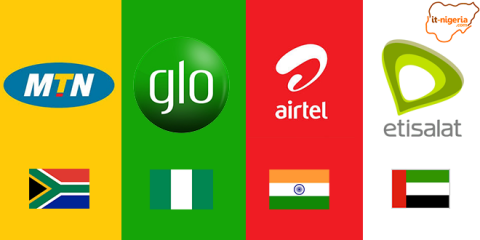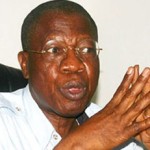OPINION: From Telecom, Banking to Manufacturing, Nigerians Are Cheated
Articles/Opinion, Featured Contributors/Columnists, Latest Headlines Thursday, September 29th, 2016
Although I wanted Real Madrid to win Borussia Dortmund yesterday evening, 27th September 2016, in the ongoing UEFA Champions League competition, my situation was made worse by what I discovered when I opened my newly bought and well caped Cadbury bournvita to take tea. I discovered that it was virtually half-filled in quantity. What? Why? These were some of the instant questions that razed through my mind. Immediately too, I took out my powdered Peak milk I bought together with the said bournvita. I opened it and it was three-quarter filled. I was angrier. I recalled that the reason I stopped buying the sachet Peak milk was because it is always half-filled. In all of these half-filled products, I believe the price I paid for them was for full not the half I got. So I began to reminiscent on such cases I had over looked in Nigeria over the years.
Electricity bill in Nigeria is based on estimates and some flat components. This was what a then Power Holding Company Nigeria (PHCN) staff told me way back in 2012 when I asked why my bill should be so high despite very poor electricity supply during February-March period that year. I vividly remember the inconveniences we faced during then: heat and sweating, a lot of heat rashes on my kids, regular warming of all cooked foods, buying more gas than usual for cooking, spending more on fuel for my small electricity generator, spending more on cloth laundry, etc. That was before the privatization of PHCN and the handover of the electricity companies (gencos and discos) to core investors in November 2013.
I was wrong to have thought that the practice of manual or printed electricity bills will stop and meters will be made available to all electricity consumers in Nigeria after privatization of PHCN. Till today, despite my efforts to ensure that the meter installed in my flat works, Abuja Electricity Distribution Company (AEDC) still send to me printed estimated electricity bills. In fact their frustrating attitude has discouraged me from insisting that the meter works. They make sure the meter does not work so that they continue making money through fictitious bills that enable the investors smile to the bank, while Nigerians are cheated for paying bills they never consumed.
Telecommunication is another area Nigerians are cheated. For example, with my MTN number, I observed that if I send a text message of less than three lines, sometimes I am charged N2 and most other times I am charged N4. I do not borrow from MTN to use my phone or sim. I recharge as at when due. Neither Nigeria Electricity Regulatory Commission (NERC) nor MTN has thought it necessary to explain to Nigerians why we should be charged different rates for same service.
MTN has been cheating Nigerians through numerous registration and re-registration of sim cards. They do not care what we lose to have our sims re-registered: we pay transport fare to registration points, we abandon all works and programmes for that day, we suffer the whole inconveniences of queuing up on a very long lines for hours etc. They won’t even volunteer an appreciation of what we pass through to have are sim cards re-registered many times. For example I suffered so much early this year when I woke up one early morning at Covenant University Ota (where I am doing my postgraduate studies) in February and found over fifteen messages from MTN warning me to quickly go to any nearby MTN shop to register my sim, else my sim will be blocked. It so jolted me that I became angry knowing the costs and frustration involved in going to re-register my sim card. The most painful will be that I will miss my classes that day. So I went to Sango Ota, MTN’s yellow office at about 7.30 am. I joined a very long queue and was given a number. By 6 pm, we were told to come back early morning tomorrow and I missed all my classes that day. The next morning the number of the warning messages from MTN had doubled, yet I could not reply to say I was there yesterday and could not register because of the unbelievable number of affected subscribers. Meanwhile, I recall that when I bought this sim card in February 2002 at Ikoyi, then I lived in Lagos, it was registered and I had been using this number since then. Again between 2009 and 2013, I had re-registered this sim several times at MTN yellow office at Maitama, Abuja (where I now reside). Okay, no more introspection, the next morning I arrived the MTN yellow office at Sango Ota exactly 6.05 am and joined the queue. Finally, in anger and frustration, my sim was re-registered at exactly 2.13 pm and I left. My question is: is this how MTN suffer its customers in South Africa and all other places it operates?
The banks are also cheating Nigerians. The charges are just too many to be true: account maintenance charge, alert charge, interbank transfer charge, charge for using ATM card in another bank, VAT on all charges, COT charge, administrative charge for loan, handling charge, etc. It is astonishing to find out how much banks in Nigeria charge their customers per month and indeed per year. I am sure I pay my bank a minimum of N70, 000 annually for operating a salary account with them. So how much will a bank with over five million customers like me realize in a year? This is a whopping N350 billion per year. Yet the banks will report their own income and profits they want to disclose and pay dividends they want to pay. Thus the banks cheat the customers, cheat the shareholders and cheat the state.
How can these cheatings be checked and reduced? I ask further: in a capitalist economy, should government be interested only in quality of the products and services rendered to the people and not the quantity and price? What about the agonizing sufferings Nigerians go through despite the cheating? For the manufacturers of beverages, the Standard Organization of Nigeria (SON) and all other relevant regulatory and monitoring agencies should go beyond quality checks to also ensure that the quantity is as labelled. For example, I am not sure that the quantity of the bournvita in question here before me could weigh 500g as labelled. This must be verified before the product hits the market. If the law establishing these agencies did not include quantity verification, the agencies should notify the consumer protection groups who could escalate the matter to the national assembly. It is evil for me to pay for a supposedly full bournvita and receive half.
For fictitious electricity bills, why should government not be interested in seeing that electricity consumption is fully metered and all paper bills banned? There should be a law stopping Nigerians from paying paper electricity bills. Nigerians should pay for meter-based direct consumption bills: pay as you use, just like the GSM cards. NERC and all relevant regulatory authorities should ensure that the meter policy is implemented immediately. Recession times abhor cheating of Nigerians in any form.
The banks must do business with conscience. All these multiple charges should be checked. The CBN’s monitoring directorate should employ more hands and make them capable for effective surveillance works on the banks. Nigerian banks have developed so much tough skins that they appear to be above the law. It is simply CBN’s failure. Also the consumer rights protection groups and audit committees of banks should take up this issue of excessive multiple charges by Nigerian banks. But I am afraid if the audit committees are not compromised. The morality of business is to make decent profit, but cheating your customers is not good business and cannot earn decent profit as it is against true corporate social responsibility of banks.
If MTN may not be charging different rates for same service in South Africa, why do so in Nigeria? NERC should find out how MTN bill its customers in South Africa and other places where it operates and compare with what it does in Nigeria. The war against indiscipline (WAI) should be of effect in the operations of telecom companies. Best practices should be the guiding principle in the provision of services in the sector. Charging different rates for same service is unwholesome and should be stopped.
It may be easy and profitable to continually cheat gullible Nigerians, but because it cannot stand the morality of business, such huge profits are contrived gains that can destroy the gainers. Away from morality, Nigerian laws regarding consumer rights, products and services should be strengthened.
Okachikwu Dibia, Abuja.
Related Posts
Short URL: https://www.africanexaminer.com/?p=35812






















